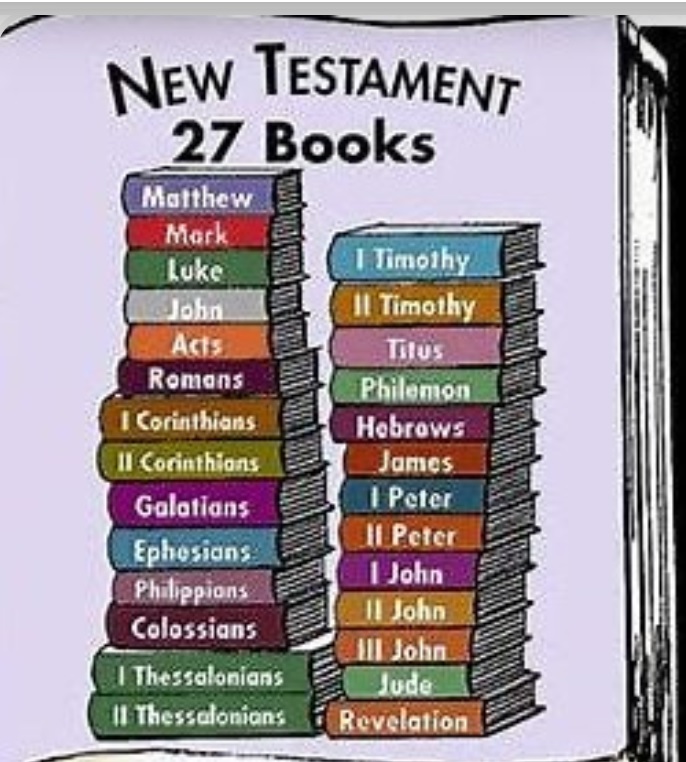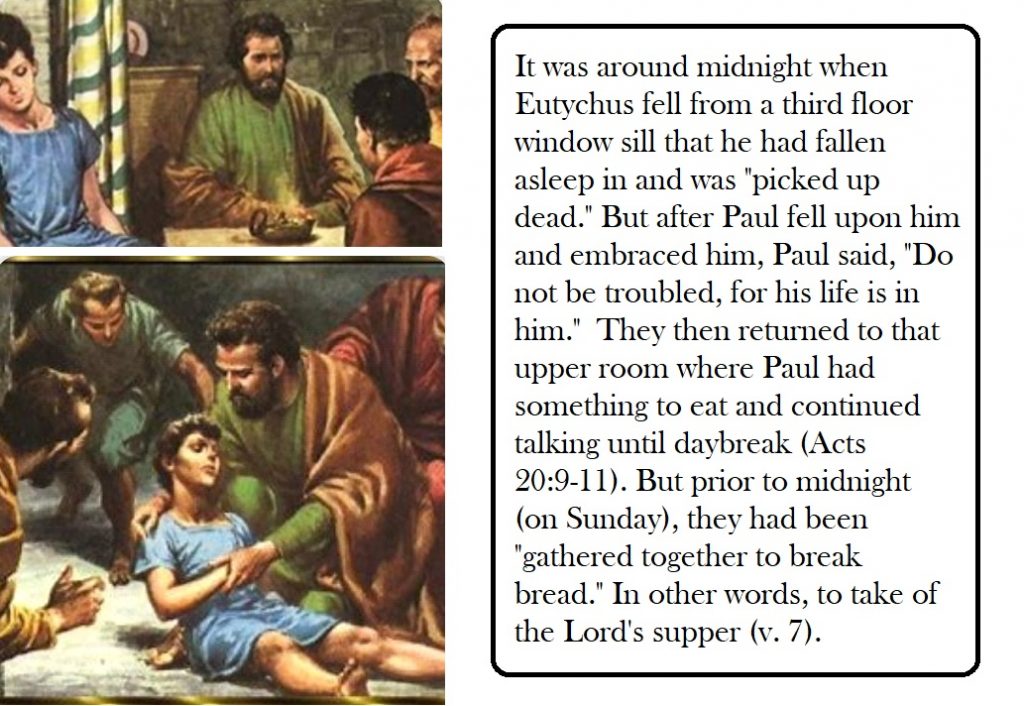“Go therefore and make disciples of all the nations…teaching them to observe all that I commanded you; and lo, I am with you always, even to the end of the age” (Matthew 28:19-20, NASB).
——————–
Contents:
1) Theft, Cheating, Lying, and Other Dishonest Behaviors (Kyle Pope)
2) “I Am Offended” (Frank Himmel)
3) When Did Men Begin to Believe in the Inspiration of the New Testament? (Greg Gwin)
4) News & Notes
——————–

-1-
Theft, Cheating, Lying, and Other Dishonest Behaviors
Kyle Pope
The Holy Spirit led Paul to pen these words to the saints in Ephesus: “Therefore, putting away lying, ‘Let each one of you speak truth with his neighbor,’ for we are members of one another” (Eph. 4:25, NKJV). Paul’s wording in the middle of this verse is drawn from Zechariah. To people who had returned from the Babylonian exile and were working to rebuild the temple and their relationship with God, the Lord told Zechariah:
“For thus says the LORD of hosts: ‘Just as I determined to punish you when your fathers provoked Me to wrath,’ says the LORD of hosts, ‘and I would not relent, so again in these days I am determined to do good to Jerusalem and to the house of Judah. Do not fear. These are the things you shall do: speak each man the truth to his neighbor; give judgment in your gates for truth, justice, and peace; let none of you think evil in your heart against your neighbor; and do not love a false oath. For all these are things that I hate,’ says the LORD” (Zech. 8:14-17).
To restore or maintain a good relationship with the Lord, Zechariah and the people were told, (in Paul’s wording), “Let each one of you speak truth with his neighbor.” God sees our treatment of others and holds us accountable for it. That means not only that honest, fair, and just treatment of others will allow things to go smoother for us in our relationships with one another but our very relationship with God depends upon it. We cannot love God and do things He hates.
A Message for Today
This is an important lesson for us today! In many areas of life, we may imagine we can claim to have a saved relationship with God while practicing the behavior Paul and Zechariah rebuked.
Stealing. No one is looking and you slip that candy bar into your pocket at the convenience store. Someone has wronged you, so you “get even” by taking something that belongs to her. A man drops his wallet. You turn it in—but first you help yourself to some of the money inside it. You borrow money then forget (or refuse) to pay it back. Your neighbor’s newspaper was thrown just outside his driveway. That makes it “fair game,” right? No!
All of these things might seem minor, but Scripture condemns them! God hates “robbery” (Isa. 61:8), and the partner of a thief is said to hate his own life (Prov. 29:24). The thief deserves shame (Jer. 2:26) and to act in this way is to follow the example of Judas, the betrayer of Jesus (John 12:6)! Any hopes one places in joys that come from theft are “vain” because “power belongs to God” (Psa. 62:10-11). The Holy Spirit says, “The wicked borrows and does not repay” (Psa. 37:21a). So, even when society may sympathize with some types of stealing, the thief will be called to account for his actions (Prov. 6:30-31). Ultimately, taking what doesn’t belong to us does not bring satisfaction. The wise man wrote, “Bread gained by deceit is sweet to a man, but afterward his mouth will be filled with gravel” (Prov. 20:17).
Cheating. The test is hard, so you glance over at your friend’s paper. An essay is due at school so you find (or buy) one someone else wrote and put your name on it. You’re weighing produce at the grocery store and you lift the scale just a little to lower the price. You notice that the salesmen forgot to charge you for that extra feature on your bill, but you remain silent. Your employees are entitled to some special benefit, but you don’t mention it to them. It’s time to figure your taxes but you don’t declare some income, or take deductions that aren’t allowed—then smile, sing, pray, and worship God acting as if everything is fine!
God has always condemned cheating. In the Law of Moses, He commanded:
“You shall not have in your bag differing weights, a heavy and a light. You shall not have in your house differing measures, a large and a small. You shall have a perfect and just weight, a perfect and just measure, that your days may be lengthened in the land which the LORD your God is giving you. For all who do such things, all who behave unrighteously, are an abomination to the LORD your God” (Deut. 25:13-16).
We should note this behavior is considered unrighteous and the Lord views it as “an abomination.” The wise man echoes this, writing, “Dishonest scales are an abomination to the LORD, but a just weight is His delight” (Prov. 11:1). Do we truly want to please the Lord? Then we must do things that delight Him. In the days of Amos, the Lord rebuked those who looked forward to the conclusion of times of worship so they could make profit “by deceit.” The Lord told them—and any who would act this way—“I will never forget any of their works” (Amos 8:4-7).
Lying. A politician says one thing when speaking to a particular audience, but the exact opposite when speaking to another. Someone needs our help and we quickly say, “Sure, I can help,” but we never follow through. A man and woman stand up before God and witnesses and promise to be faithful to each other “until death do us part.” Then, as the years and common interests grow further apart, they go their separate ways forsaking their word, their families, and their covenant before God.
A “false witness” is among those things the Lord “hates” (Prov. 6:16-19). “Lying lips are an abomination to the LORD, but those who deal truthfully are His delight” (Prov 12:22). The deceitful tongue is “a deadly arrow” as it speaks “peace” to one’s neighbor while plotting to do him harm (Jer. 9:8). Jesus called His disciples to a level of honesty that did not consider some statements binding and others not. He prohibited swearing (Jas. 5:12) and taught them to let their “‘Yes’ be ‘Yes,’” and their “‘No,’ ‘No’” (Matt. 5:37). The Christian must recognize, “One who is faithful in a very little is also faithful in much, and one who is dishonest in a very little is also dishonest in much” (Luke 16:10, ESV).
Called to Better Things
In the text we noted earlier, Zechariah told the exiles who were striving to restore their relationship with the Lord to, “speak each man the truth to his neighbor,” not to “think evil in your heart against your neighbor” and not to “love a false oath” (Zech. 8:14-17, NKJV). Disciples of Christ, in a similar light, are told to recognize the high standard of conduct to which children of the King of Heaven are called. Paul wrote, “Do not lie to each other, since you have taken off your old self with its practices and have put on the new self, which is being renewed in knowledge in the image of its Creator” (Col. 3:9-10).
The heart that lies and practices deceit does not imitate the behavior of its Creator—it seeks to take advantage of its neighbor. The wise man prayed, “Keep falsehood and lies far from me” (Prov. 30:8a). This should be the prayer of the Christian! The heart that would cheat and steal to gain profit cares nothing for the loss it imposes upon its neighbor. It ignores the command of its God and shows ingratitude for all He has already provided. The wise man continues, “give me neither poverty nor riches, but give me only my daily bread. Otherwise, I may have too much and disown You and say, ‘Who is the LORD?’ Or I may become poor and steal, and so dishonor the name of my God” (Prov. 30:8b-9).
The Israelite who had stolen from his neighbor was commanded to make restitution greater than the value of the item taken. An ox was to be restored fivefold and the sheep fourfold (Exod. 22:1). This recognized the harm inflicted upon the one who suffered the loss and the value it would have brought to him during its absence. In Christ, we are taught, “Let him who stole steal no longer, but rather let him labor, working with his hands what is good, that he may have something to give him who has need” (Eph. 4:28). Honest work must replace dishonest gain, and a concern for the needs of others must replace a desire to gain advantage over them. The one who “loves and practices a lie” will be excluded from eternal life with God (Rev. 22:15). That tells us the importance of maintaining honest behavior. We are not talking about things that have only temporary consequences—“The truthful lip shall be established forever, but a lying tongue is but for a moment” (Prov. 12:19).
— Via Faithful Sayings, Volume 22, Issue 36 (September 6, 2020).
——————–

-2-
“I Am Offended”
Frank Himmel
It is common these days to hear someone say he is offended. Dictionary.com lists as the first meaning of offend, “to irritate, annoy, or anger; cause resentful displeasure in.” In other words, “I am offended” means “I don’t like it!”
It seems timely to remind us all that when the Bible speaks of someone being offended it means something far more serious than displeasure, even severe displeasure. The New Testament word translated offend or offence refers to causing another to sin. It is the word for the stick in a trap, hence it means to ensnare. It is often rendered stumble.
Christians are not to be offensive, either to the world or to each other (1 Corinthians 10:32). Of course, simply being a Christian is irritating to some, as is preaching the gospel! We can’t do much about that. But we can live in such a way as to be lights in the world, careful enough about our example that we avoid even questionable conduct—conduct which might encourage another to do what is wrong.
— Via Pathlights, June 28, 2020
——————–

-3-
When Did Men Begin to Believe in the Inspiration of the New Testament?
Greg Gwin
Some skeptics claim that there was a gradual evolving of thought concerning the Scripture – that only after a long period did these writings come to be regarded as an authoritative source. That simply is not true.
When the inspired men of the first century wrote, the product of their work was immediately acknowledged and accepted by those in the church. They “continued steadfastly in the apostles’ doctrine” (Acts 2:42) and they received those teachings “not as the word of men, but as it is in truth, the word of God” (1 Thessalonians 2:13). These writings were “Scripture” before the ink had dried. (The word “Scripture” is used about 50 times in the New Testament and always refers to the written record of the will of God. Thus, the word “Scripture” can be accurately applied to the things found in both the Old and New Testaments.)
Certainly there was a gradual process of spreading and distributing these writings around the world (Colossians 4:16). Ultimately there was a compiling of these works into one book. (There is some evidence that compilations of the various books that make up our New Testament began as early as 115 A.D. – perhaps only a few years after the death of the last apostle). But the actual writings were regarded as Scripture immediately. Paul (writing in about 65 A.D.) quotes Luke’s gospel and refers to it as Scripture (see 1 Timothy 5:18 and Luke 10:7). Peter (in 66 A.D.) mentions Paul’s writings and calls them Scripture (2 Peter 3:16).
We know that the inspired writings of the first century were widely circulated among Christians of that time (see Col. 4:16 and 1 Thess. 5:27). It is clear that those earliest Christians held the sacred writings in highest esteem and regarded them as the basis of their religious authority.
– Via The Beacon, June 21, 2020
——————–
-4-
News & Notes
Folks to be praying for:
Our condolences go out to the family and friends of Shirley Griffin Crews (the mother of Rebecca Rittenhouse) who passed away Monday. Let us be keeping in prayer all of her loved ones.
Harris Lefort had fallen from his roof a couple weeks ago that resulted in a concussion and a broken heel. Fortunately, his neighbor saw him fall that Saturday morning and called for help that soon had him in the hospital. He woke up the following afternoon and had surgery on his heel several days later. He now sounds very well and is in no pain, but will have to stay off his feet for 6 to 8 weeks and is using a wheelchair in the meanwhile.
Deborah Medlock received a good report from her doctor last week. She will not need chemo; and her bones are strong, though she is now taking a Vitamin D supplement and will find out this week when her recommended radiation treatments will begin.
James Medlock, in the nursing home, has been having trouble for some time with one of his toes, due to poor circulation; which they began looking into recently.
Others to also be praying for: Max Beach, Elaine Abbott, Judy Daugherty, Rick Cuthbertson, Joyce Rittenhouse’s brother, Doyle Rittenhouse, Jim & Martha Lively, Larry & Janice Hood, Jamie Cates, A.J. & Pat Joyner, Allen & Darlene Tanner, Shirley Davis, Pat Brigman, Ronnie & Melotine Davis, Tim Kirkland, Rex & Frankie Hadley, Cameron Haney, and Ginger Ann Montero.
——————–
The Steps That Lead to Eternal Salvation
1) Hear the gospel — for that is how faith comes (Rom. 10:17; John 20:30-31).
2) Believe in the deity of Jesus Christ (John 8:24; John 3:18).
3) Repent of sins. For every accountable person has sinned (Romans 3:23; Romans 3:10), which causes one to be spiritually dead (Ephesians 2:1) and separated from God (Isaiah 59:1-2; Romans 6:23). Therefore, repentance of sin is necessary (Luke 13:5; Acts 17:30). (Luke 13:5; Acts 17:30).
4) Confess faith in Christ (Rom. 10:9-10; Acts 8:36-38).
5) Be baptized in water for the remission of sins (Mark 16:16; Acts 2:38; 22:16; Rom. 6:3-4; Gal. 3:26-27; Col. 2:12; 1 Pet. 3:21).
6) Continue in the faith by living for the Lord; for, if not, salvation can be lost (Matt. 24:13; Heb. 10:36-39; Rev. 2:10; 2 Pet. 2:20-22).
——————–
Tebeau Street
CHURCH OF CHRIST
1402 Tebeau Street, Waycross, GA 31501
We are currently meeting for only our Sunday 10 a.m. worship service each week, due to the coronavirus situation.
evangelist/editor: Tom Edwards (912) 281-9917
Tom@ThomasTEdwards.com
http://thomastedwards.com/go (older version of the Gospel Observer website, but with bulletins going back to March 4, 1990)


















